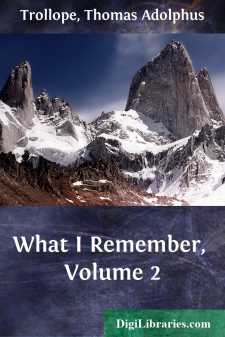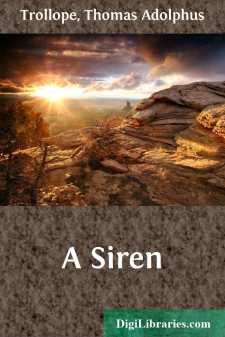Categories
- Antiques & Collectibles 13
- Architecture 36
- Art 48
- Bibles 22
- Biography & Autobiography 813
- Body, Mind & Spirit 142
- Business & Economics 28
- Children's Books 17
- Children's Fiction 14
- Computers 4
- Cooking 94
- Crafts & Hobbies 4
- Drama 346
- Education 46
- Family & Relationships 57
- Fiction 11829
- Games 19
- Gardening 17
- Health & Fitness 34
- History 1377
- House & Home 1
- Humor 147
- Juvenile Fiction 1873
- Juvenile Nonfiction 202
- Language Arts & Disciplines 88
- Law 16
- Literary Collections 686
- Literary Criticism 179
- Mathematics 13
- Medical 41
- Music 40
- Nature 179
- Non-Classifiable 1768
- Performing Arts 7
- Periodicals 1453
- Philosophy 64
- Photography 2
- Poetry 896
- Political Science 203
- Psychology 42
- Reference 154
- Religion 513
- Science 126
- Self-Help 84
- Social Science 81
- Sports & Recreation 34
- Study Aids 3
- Technology & Engineering 59
- Transportation 23
- Travel 463
- True Crime 29
Thomas Adolphus Trollope
Thomas Adolphus Trollope (1810–1892) was an English writer and historian, known for his travel books, novels, and historical works. He spent much of his life in Italy, which became the setting for many of his works, including "A Decade of Italian Women" and "Beppo the Conscript." Trollope was the older brother of novelist Anthony Trollope, and like his sibling, he contributed significantly to 19th-century English literature. In addition to his writing, he was also a journalist and an active observer of Italian politics during the Risorgimento.
Author's Books:
Sort by:
CHAPTER I. No! as I said at the end of the last chapter but one, before I was led away by the circumstances of that time to give the world the benefit of my magnetic reminiscences—valeat quantum!—I was not yet bitten, despite Colley Grattan's urgings, with any temptation to attempt fiction, and "passion, me boy!" But I am surprised on turning over my old diaries to find how much I was...
more...
CHAPTER I The Last Night of Carnival It was Carnival time in the ancient and once imperial, but now provincial and remote, city of Ravenna. It was Carnival time, and the very acme and high-tide of that season of mirth and revel. For the theory of Carnival observance is, that the life of it, unlike that of most other things and beings, is intensified with a constantly crescendo movement up to the last...
more...



